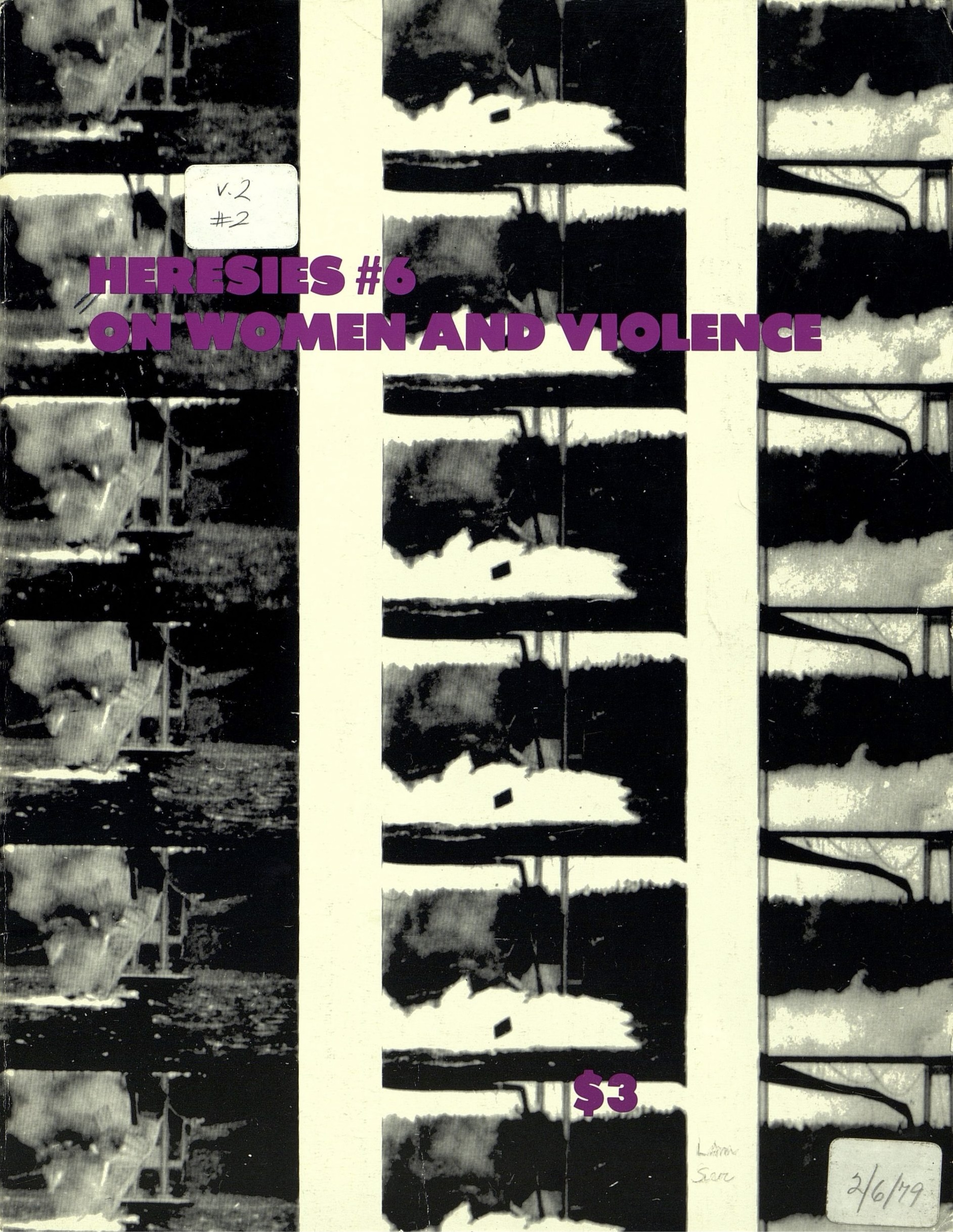On Women and Violence
Heresies Vol. 2, No. 2, Summer 1978
-
-
From the Issue 6 Collective
We came together almost a year ago to examine violence. We operated as a
study group, a work group and a support group. Our individual reasons for
joining together to work on this issue included years of involvement in workplace organizing, work with tortured political prisoners in Chile, work with
battered women in New York City, three years’ work as a whore; to substantiate a psycho-sexual curiosity in violence; being molested and beaten by a
father, being raised by working-class communist parents, being lesbian, being
Indian in a White supremacist society. And all of us shared a commitment, as
women, to the radical restructuring of this society.
Readings and discussions about our individual experiences have helped us
clarify the inextricable connection between power, control and privilege: that
violence, in its broadest sense, is essential in maintaining any unequal relation¬
ship. We were forced to abandon linear notions about the causes, functions and
manifestations of violence and to replace them with an understanding that was
both multidimensional and itself a process.
In one-to-one relations, most of us at times have felt in control, powerful:
mothers over children, whores over tricks, females withholding something a
male wants. In a larger sense, however, this power is relative. If the laws, jobs,
money, and values that affect our lives are determined by men with power, then
the personal power we experience as mother, whore or girlfriend is never outside of this context.
Actual power can be elusive, not something you can hold in your hand. Power does not have a life of its own, but is established over and over again through
interaction. The power of some individuals, whether a caseworker, a husband
or a boss, and some institutions over others is culturally sanctioned and
enforced.
We recognize that violence is woven throughout the fabric of all social structures and that this violence is experienced differently according to cultural,
racial, sexual, class, ethnic, age and national identity. Those of us who are poor
in a classist society, Third World in a racist society, female in a sexist society,
homosexual in a heterosexist society know daily the violence directed at us because of who we are and the importance of uniting along these lines. But to
examine class and not race, class and race but not sex, or sex and nothing else,
perpetuates our isolation and undercuts the clarity of our analysis and the
strength of our united action.
Women have always fought back. We have fought for survival, for change
and for revolution. Recognizing and examining our identity as a gender class
enables us to challenge one of the most deep-rooted and long-lasting instances
of domination: that of men over women
Feminism takes as a central assumption that women as women are everywhere oppressed. The nature of this oppression may be modified by the partic-
ular male-dominated social system that a woman is part of, but as variable as
male domination may be, the central feature of the relations between the sexes
is differential access to societal resources and expropriation of one group’s
labor power by another group. So not only are women oppressed by social
custom and laws that deny them economic self-sufficiency, political visibility
and social status vis-à-vis men, but the labor power of all women (including
productive and reproductive) is ultimately under the control of men.
We have been working toward an issue that is more than a documentation of
the violence endured by women throughout herstory or a simple collection of
individual solutions. We have been working toward an issue that will stimulate
debate and contribute to the momentum of women effecting radical change.
Within the intersection of gender, violence and power exists one of the keys to
understanding oppression and resistance.
—The 6th Issue Collective

